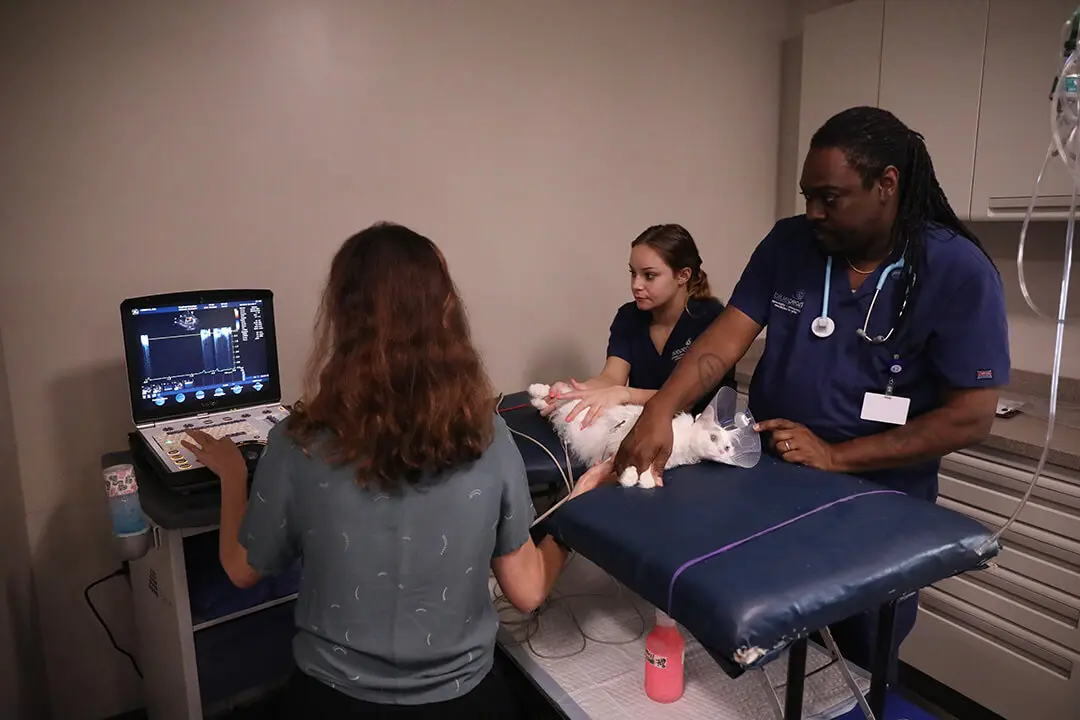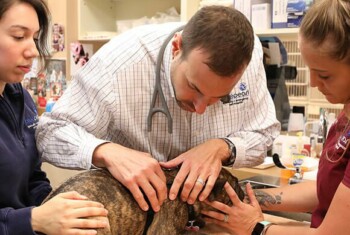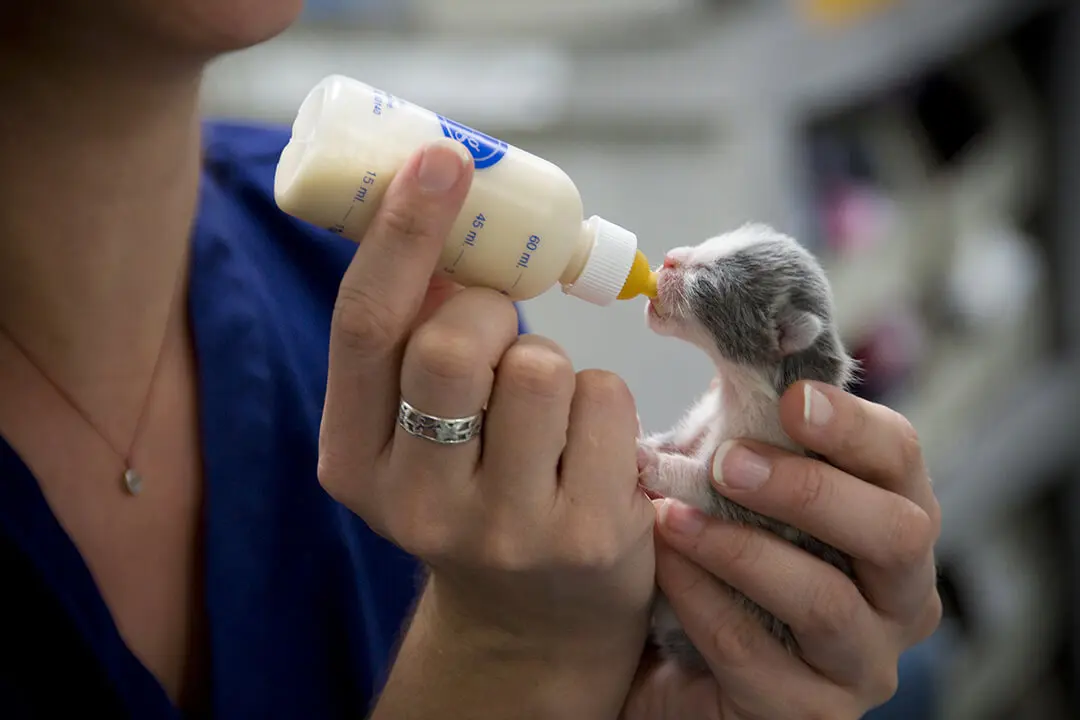Arrhythmogenic right ventricular cardiomyopathy (ARVC): Diagnosis, treatment and prognosis.
Arrhythmogenic right ventricular cardiomyopathy (ARVC) is a condition that runs in families of boxers but has been reported in humans and cats as well. It has been shown to be genetic, so affected animals should not be bred.
These animals suffer from ventricular arrhythmias, or abnormal heartbeats, which originate from the right ventricle (one of the bottom chambers of the heart). In addition, affected animals may also have enlargement of the right side of the heart, systolic dysfunction (decreased ability to pump blood forward to the body) and congestive heart failure. Often the first sign of this condition is sudden death during exercise or even while sleeping.
Diagnosis.
 The diagnosis of ARVC is made by electrocardiography (ECG) and echocardiography (ultrasound of the heart). The initial ECG often documents the presence of abnormal beats. A Holter monitor (ECG machine worn continuously) helps to evaluate the frequency and severity of abnormal heartbeats over 24 hours at home.
The diagnosis of ARVC is made by electrocardiography (ECG) and echocardiography (ultrasound of the heart). The initial ECG often documents the presence of abnormal beats. A Holter monitor (ECG machine worn continuously) helps to evaluate the frequency and severity of abnormal heartbeats over 24 hours at home.
An echocardiogram is performed to evaluate heart function and determine if other concurrent heart diseases are present. Genetic testing, while available, is most helpful for breeders looking to screen their breeding population.
Complications.
Single abnormal beats rarely cause any clinical problems. However, if multiples of these abnormal beats occur in a row at a fast rate, the heart does not have sufficient time to fill with blood or pump enough blood to the body. This leads to signs of syncope (collapse), weakness, exercise intolerance and even sudden death.
In addition, these patients can develop signs of right-sided heart failure (abdominal distension from fluid build-up) or left-sided heart failure (coughing, increased respiratory rate and effort, or difficulty breathing).
Treatment.
The cornerstone of treatment for ARVC is anti-arrhythmic therapy. Sotalol, a beta blocker and antiarrhythmic, is the most common drug used. Common side effects include fatigue, dizziness, loss of appetite or nausea. Other antiarrhythmics include mexiletine or amiodarone. If signs of systolic dysfunction and heart failure are present, additional medications, such as angiotensin-converting enzyme (ACE) inhibitors and diuretics may be used.
Prognosis.
ARVC is a lifelong disease that can eventually lead to the death of your pet. Life expectancies are extremely variable, but with medication and monitoring, many pets enjoy years of quality life. Unfortunately, the disease can also be so severe that sudden death occurs even with treatment.
Periodic echocardiograms and Holter monitoring help to monitor for disease progression and to assess medications.
For more information on this subject, speak to your veterinarian and ask about a referral to a veterinary cardiologist. BluePearl offers cardiology services that can help with the diagnosis and treatment of arrhythmogenic right ventricular cardiomyopathy. Search for a BluePearl cardiologist near you.


